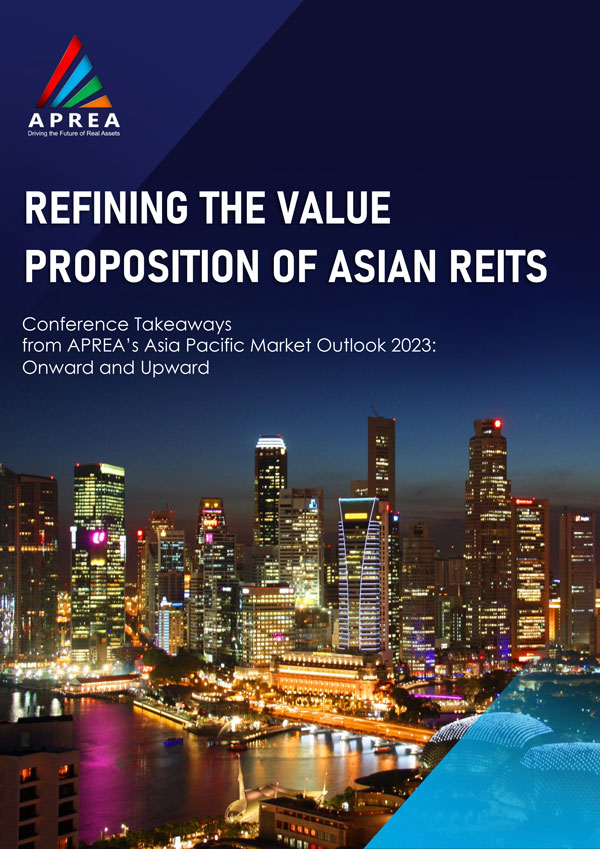
The last decade was marked by an aggressive expansion of the region’s real estate markets. APREA’s Asia Pacific Market Outlook 2023: Onward and Upward held a session with REIT stakeholders on their business strategies around Covid, e-commerce, changing monetary policies, geopolitics, and new priorities (ESG) and the next set of challenges and opportunities.
Download the Report Read More
The last decade was marked by an aggressive expansion of the region’s real estate markets. APREA’s Asia Pacific Market Outlook 2023: Onward and Upward held a session with REIT stakeholders on their business strategies around Covid, e-commerce, changing monetary policies, geopolitics, and new priorities (ESG) and the next set of challenges and opportunities.
Download the Report Read MorePlease find below the rebalancing results for the following GPR/APREA index series, which will become effective as of 20 March 2023 (start of trading):
A recent CBRE survey of more than 500 commercial real estate professionals worldwide revealed these key findings:
This report was originally published in https://www.cbre.com/insights/books/strengthening-value-through-esg
Download the Report Read MoreEnough has been written about the impact of Budget 2023 on REITs and InvITs. Through this piece, Resolut Partners tries to succinctly capture the what, why, and what next of the proposed changes – keeping it germane mainly to global financial investors.
Key Takeaways: